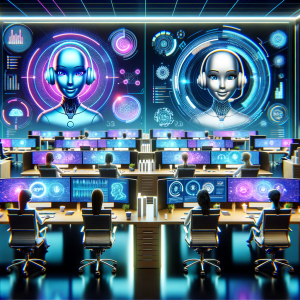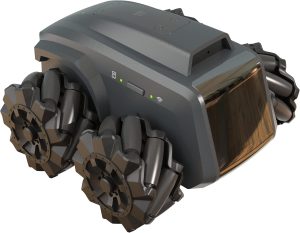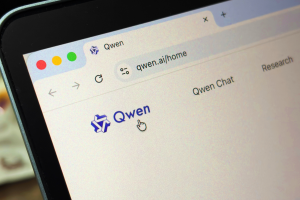Hotel Services Powered by AI Chatbots: The Future is Here!

The hospitality industry is witnessing a revolutionary transformation with the advent of *AI chatbots*. These intelligent systems are *redefining guest experiences* and streamlining operations, making hotel stays more enjoyable and efficient. *AI chatbots* are not just a trend; they are becoming an integral part of hotel services, providing a myriad of benefits that range from personalized guest interactions to efficient room service management.
Imagine checking into a hotel and being greeted by a friendly chatbot that knows your preferences, answers your questions, and assists you with your needs without any human intervention. This is not a distant future but a present reality, thanks to the rapid advancements in *artificial intelligence* and machine learning technologies.
Hotels are increasingly adopting AI chatbots to enhance their services. From booking reservations to providing real-time recommendations for local attractions, these chatbots are designed to offer a seamless and personalized experience to guests. Moreover, they help hotel staff by handling routine inquiries and tasks, allowing them to focus on more critical aspects of hospitality.
If you are intrigued by the potential of AI chatbots in the hospitality industry and want to learn how to build one, our Learn AI Chatbot Course is the perfect starting point. Our step-by-step course will guide you through the process of creating powerful AI chatbots that can transform hotel services.
Enhancing Guest Experience with AI
One of the most significant advantages of *hotel services powered by AI chatbots* is the enhanced guest experience. AI chatbots can provide *personalized interactions* that make guests feel valued and understood. By leveraging data from previous stays, preferences, and real-time interactions, chatbots can tailor services to meet individual needs.
For instance, if a guest frequently orders room service at a particular time, the AI chatbot can proactively suggest meal options based on their previous choices. Additionally, chatbots can handle a wide range of inquiries, from providing information about hotel amenities to recommending local attractions and dining options. This level of service not only enhances the guest experience but also frees up hotel staff to focus on more complex tasks that require a human touch.
Moreover, AI chatbots can communicate in multiple languages, breaking down language barriers and ensuring that international guests receive the same high level of service as local guests. This capability is particularly beneficial for hotels in tourist hotspots, where guests may come from various linguistic backgrounds.
Another critical aspect of enhancing guest experience is the ability to provide *24/7 support*. Unlike human staff, AI chatbots can operate around the clock, ensuring that guests receive immediate assistance at any time of the day. Whether it’s a late-night request for extra pillows or an early morning inquiry about checkout procedures, chatbots are always available to help.
Streamlining Hotel Operations with AI

Implementing *hotel services powered by AI chatbots* goes beyond enhancing guest experiences; it also significantly streamlines hotel operations. By automating routine tasks, AI chatbots free up valuable time for staff, allowing them to focus on more critical and complex responsibilities.
One of the key areas where AI chatbots excel is in handling *reservations and bookings*. Chatbots can manage the entire booking process, from checking room availability to confirming reservations, reducing the likelihood of human error. This ensures a seamless experience for guests while optimizing occupancy rates for the hotel.
AI chatbots can also assist with *check-in and check-out procedures*. Guests can interact with chatbots to complete check-in formalities, receive digital room keys, and even request late check-outs. This minimizes wait times at the front desk and provides a smoother transition for guests arriving or departing.
Inventory management is another crucial area where AI chatbots can make a difference. By monitoring stock levels of essential supplies, chatbots can automatically place orders when inventory runs low, ensuring that the hotel never runs out of necessary items. This proactive approach helps maintain operational efficiency and guest satisfaction.
Furthermore, AI chatbots can contribute to *maintenance management*. By collecting data from various sensors and systems within the hotel, chatbots can identify potential issues before they become major problems. For example, if a sensor detects a malfunctioning HVAC system, the chatbot can alert the maintenance team, allowing for timely repairs and preventing guest discomfort.
By integrating AI chatbots into daily operations, hotels can achieve higher efficiency, reduce operational costs, and enhance overall service quality. This technology not only simplifies routine tasks but also provides valuable insights that can drive continuous improvement in hotel management.
Personalized Services Through AI Chatbots

In the modern hospitality industry, *personalization* is key to creating memorable guest experiences. AI chatbots are at the forefront of this revolution, offering highly personalized services that cater to individual preferences and needs.
One of the most significant benefits of using AI chatbots is their ability to collect and analyze *guest data*. From prior stays, preferences, and feedback, chatbots can build detailed profiles for each guest. This enables the hotel to offer tailored recommendations, such as suggesting favorite meals or activities, making guests feel valued and understood.
Moreover, AI chatbots can facilitate *customized room settings*. Upon arrival, guests can interact with the chatbot to adjust room temperature, lighting, and even entertainment options according to their preferences. This level of personalization enhances comfort and satisfaction, contributing to a more enjoyable stay.
Chatbots can also assist in providing *localized recommendations*. By leveraging data on local attractions, dining spots, and events, AI chatbots can offer guests curated suggestions based on their interests. For instance, a guest interested in art might receive recommendations for nearby galleries and exhibitions.
Another area where AI chatbots excel is in delivering *special offers and promotions*. By analyzing guest data, chatbots can identify opportunities to present personalized deals, such as discounted spa treatments for frequent visitors or exclusive dining experiences for food enthusiasts. This not only enhances guest engagement but also drives additional revenue for the hotel.
Additionally, AI chatbots can handle *special requests* efficiently. Whether a guest needs an extra pillow, room service, or information about hotel amenities, chatbots can promptly address these needs, ensuring a seamless and responsive service experience.
By leveraging AI chatbots for personalization, hotels can exceed guest expectations, foster loyalty, and differentiate themselves in a competitive market. The ability to deliver bespoke services tailored to individual guests elevates the overall hospitality experience, setting new standards for guest satisfaction.
AI Chatbots for Customer Support

The role of AI chatbots in *customer support* within the hotel industry cannot be overstated. These intelligent systems provide guests with immediate assistance, ensuring that their needs are met promptly and efficiently, which is crucial for maintaining high levels of customer satisfaction.
One of the primary advantages of AI chatbots in customer support is their ability to offer *24/7 availability*. Unlike human staff, chatbots do not require breaks or shifts, allowing them to assist guests at any time, day or night. This round-the-clock availability ensures that guests always have access to support, whether they need to make a late-night booking or inquire about early morning check-outs.
AI chatbots can handle a wide range of *common inquiries* efficiently. From providing information about hotel amenities, check-in and check-out times, to room availability and booking modifications, chatbots can manage these tasks with ease. By automating these routine queries, hotel staff can focus on more complex and personalized guest interactions, improving overall service quality.
Moreover, AI chatbots are adept at handling *language barriers*. Equipped with multilingual capabilities, chatbots can communicate with guests in their preferred language, ensuring that language differences do not impede the provision of exceptional service. This is particularly beneficial for hotels that attract a diverse, international clientele.
In addition to handling inquiries, AI chatbots can manage *complaints and issues* swiftly. Whether it’s a problem with a booking, a room-related issue, or a special request, chatbots can quickly escalate these matters to the appropriate human staff if they are unable to resolve them directly. This ensures that guest concerns are addressed in a timely manner, minimizing frustration and enhancing the guest experience.
Furthermore, AI chatbots can engage in *proactive customer support*. By monitoring guest interactions and feedback, chatbots can identify potential issues before they escalate and take proactive measures to resolve them. For example, if a guest frequently experiences slow Wi-Fi, the chatbot can notify the technical team to investigate and rectify the issue, improving the guest’s stay.
Overall, the integration of AI chatbots in customer support not only enhances the efficiency and responsiveness of service but also contributes to building a positive and lasting relationship with guests. By ensuring that support is always available and capable of addressing a wide range of needs, AI chatbots play a vital role in elevating the standard of hospitality services.
Future Trends in AI-Powered Hotel Services
As the hospitality industry continues to evolve, the integration of AI-powered services is set to transform how hotels operate and interact with guests. One of the most promising *future trends* in this space is the use of AI to create a more personalized guest experience. By analyzing data from previous stays and preferences, AI can tailor recommendations and services to individual guests, enhancing their overall experience.
Another exciting development is the *use of AI for predictive maintenance*. By leveraging machine learning algorithms, hotels can predict when equipment or facilities are likely to fail and take preventative measures to avoid disruptions. This not only improves operational efficiency but also ensures a seamless experience for guests.
AI chatbots are also expected to become more sophisticated, with the ability to understand and respond to complex queries and emotions. This will enable them to provide even higher levels of customer support and engagement. Additionally, as natural language processing (NLP) technology advances, chatbots will become even more adept at handling nuanced conversations, making interactions more natural and enjoyable for guests.
Another trend to watch is the *integration of AI with other technologies* such as the Internet of Things (IoT). Smart rooms equipped with IoT devices can communicate with AI systems to adjust lighting, temperature, and other settings based on the guest’s preferences. This creates a truly connected and customized environment that enhances comfort and convenience.
Furthermore, AI is set to play a significant role in *enhancing security* within hotels. Advanced facial recognition and biometric systems powered by AI can improve security measures, ensuring that only authorized individuals have access to certain areas. This not only enhances safety but also streamlines the check-in and check-out processes.
The future of AI-powered hotel services also includes *sustainable practices*. AI can help hotels optimize energy usage, reduce waste, and adhere to eco-friendly practices. By analyzing patterns and making real-time adjustments, AI can significantly contribute to a hotel’s sustainability goals, appealing to environmentally conscious guests.
In conclusion, the future of hotel services lies in the seamless integration of AI technologies to enhance personalization, efficiency, and sustainability. As AI continues to advance, it will unlock new possibilities for the hospitality industry, setting new standards for guest experiences.
If you’re interested in learning how to harness the power of AI chatbots in your business, consider enrolling in our AI Chatbot Course. Equip yourself with the knowledge and skills to stay ahead of the curve in this rapidly evolving industry.







